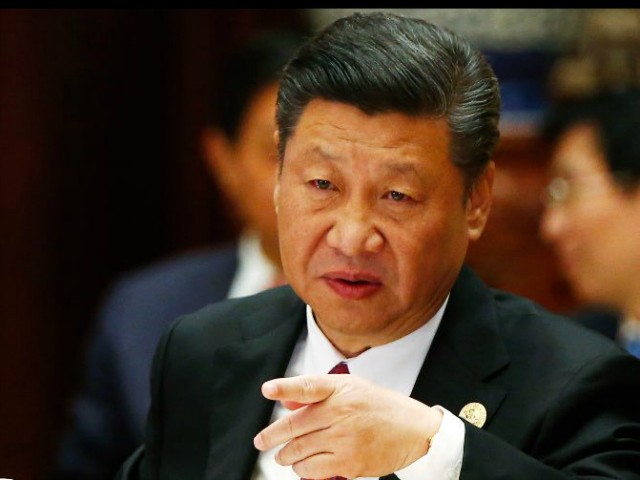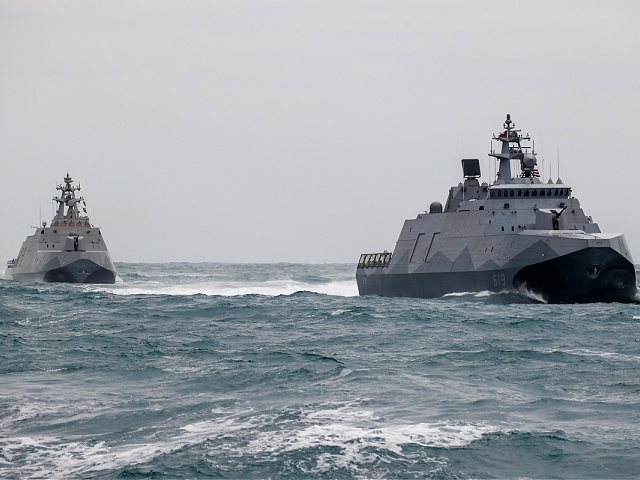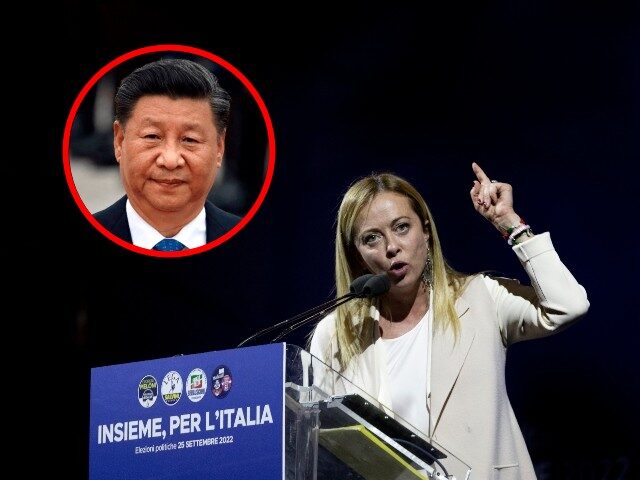China’s Global Times state newspaper warned likely Italian Prime Minister-to-be Giorgia Meloni, the right-wing leader whose party won Sunday’s national legislative elections, in an article on Tuesday not to adhere to promises to try to distance Italy from China’s influence or undo deals under the banner of the Belt and Road Initiative (BRI).
Meloni is the head of the Brothers of Italy (FdI) party, whose right-wing coalition won Sunday’s election. The coalition is widely expected to make Meloni the first woman prime minister in the history of the country.
Prior to the victory, Meloni expressed deep skepticism in business dealings with China and called Italy’s agreement to join the BRI, in particular, a “big mistake.” She has also advocated for Rome to expand ties to the nation of Taiwan, which China incorrectly considers a rogue province under Beijing, and to support the Taiwanese government in the face of incessant threats from the Chinese Communist Party.
The BRI is a global infrastructure program in which China offers poor countries predatory loans to be used to build infrastructure projects, particularly ports, roads, and railways. While the provisions of BRI contracts are often secret, the little public information available indicates that China imposes high interest rates on the loans and makes demands that party countries cannot meet, then uses the demands to seize control of the projects built under the BRI deal. The most high-profile such failure occurred in Sri Lanka, where China seized the pivotal Hambantota port for up to 200 years in 2017 when the Colombo government could no longer make BRI loan payments.
The Global Times noted that Meloni had made “tough remarks” regarding the Chinese Communist Party before her party’s victory on Sunday – and warned her not to live up to them.

Chinese President Xi Jinping attends a summit at the Belt and Road Forum on May 15, 2017 in Beijing, China. (Photo by Thomas Peter – Pool/Getty Images)
“It is our sincere hope that the new Italian government will stick to a pragmatic approach to normal economic and trade cooperation with China,” the government mouthpiece warned. “As an important member of the EU, Italy should have a foreign policy that serves its interests and Europe’s interests, rather than following the American baton.”
The Times described Italy’s decision to join the BRI in 2019 as “inevitable” because of the nation’s poor economic situation and blamed the European Union for damaging Italy’s economy.
“In 2019, Italy signed on to the China-proposed BRI, becoming the only G7 country to do so. Given the dire economic situation faced by Italy at that time, it was regarded as an inevitable choice determined by its national conditions,” the propaganda outlet narrated. “The Italian economy had been in trouble for years since the 2008 financial crisis. And as a member of the EU and of the eurozone, Italy cannot freely determine its own monetary and fiscal policies to boost its economy.”
“Under such circumstances, it is essential for Italy to inject momentum into its sluggish economy by expanding foreign cooperation, with China as one of the most important partners,” it proclaimed, noting that Italy has signed more agricultural export agreements with China than any other country in Europe.
China Daily, another government propaganda newspaper, also attacked Meloni on Tuesday for allegedly taking the “convenient” route that it claimed many in Europe had taken of “blam[ing] China for their countries’ ills.”
“Meloni has been no exception. Yet when it comes to the crunch they know that China is a key partner of their countries,” China Daily claimed. “The bilateral trade volume between China and Italy, for instance, was $55.2 billion in 2020, 0.4 percent higher than that of 2019. And in the first 10 months of 2021 alone, the volume jumped by 37 percent year-on-year to $60.3 billion.”
“For the benefits of both countries, it is to be hoped the new Italian government continues to be practical in its policy toward China, as there is huge potential to be tapped in their cooperation,” the state outlet concluded, again warning Meloni not to live up to her word.
Meloni has been one of Italy’s most vocal critics of deals with China, including shortly before the election on Sunday. Speaking to Channel News Asia (CNA) last week, Meloni promised to extract Italy from the BRI if she became prime minister and make building ties to free Taiwan a priority for Rome.

Two Taiwanese military corvettes sail during a Navy Drill for Preparedness Enhancement ahead of the Chinese New Year, amid escalating Chinese threats to the island, in Keelung, Taiwan, 7 Jan, 2022. (Photo by Ceng Shou Yi/NurPhoto via Getty Images)
Asked if she would sign an extension of the memorandum tying Italy to the BRI “tomorrow morning, it would be hard for me to see to the political conditions to do so,” she told CNA.
“Without any doubt, if there is a center-right government, it is sure that Taiwan will be an essential concern for Italy,” she added. Meloni referred to China’s routine threats of invasion against Taiwan as “unacceptable” and urged Europe generally to “put pressure as hard as possible” on China not to begin a new war.
Meloni’s opposition to communist China extends far beyond the recent election. As the South China Morning Post recalled this week, Meloni had advocated for a boycott of the 2008 Beijing Summer Olympics while serving as Italy’s sports minister in the face of widespread human rights abuses in occupied Tibet and had consistently opposed membership in the BRI.
The magazine Foreign Policy noted on Monday that those around Meloni have expressed similar concerns regarding both trade with China and Italy’s diplomatic stance towards its policies.
“It’s a given that there will be a thorough review of the [BRI] memorandum when it expires, in close consultation with European and Atlantic partners,” former Italian Foreign Minister Giulio Terzi di Sant’Agata recently said. Terzi di Sant’Agata serves as a top adviser to Meloni. The memorandum expires in 2024, potentially falling under Meloni’s authority to extend or cancel.

COMMENTS
Please let us know if you're having issues with commenting.